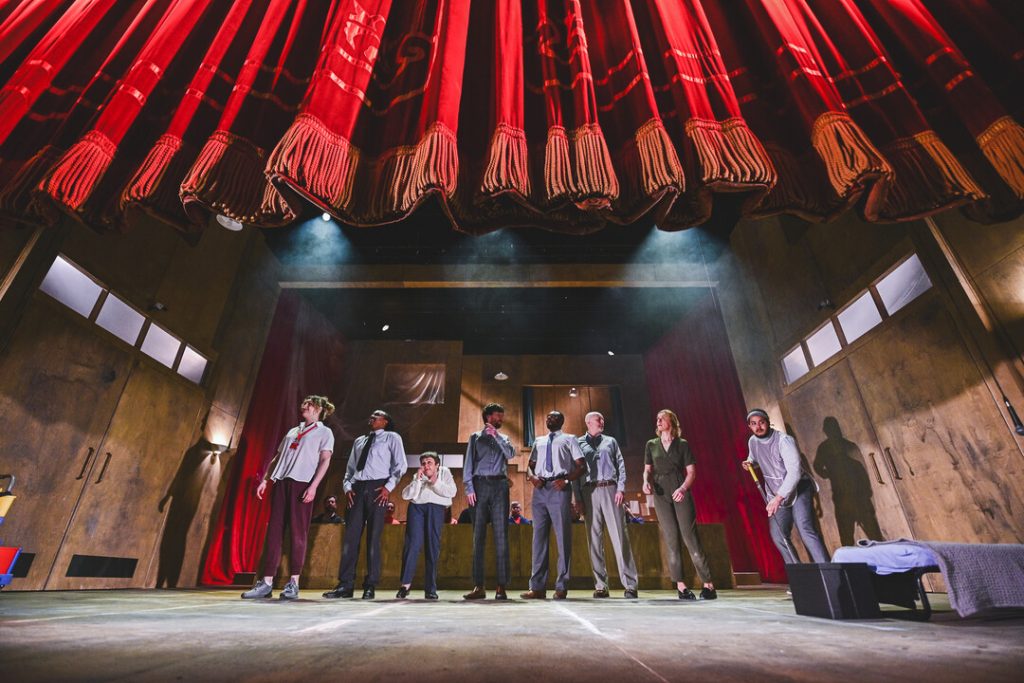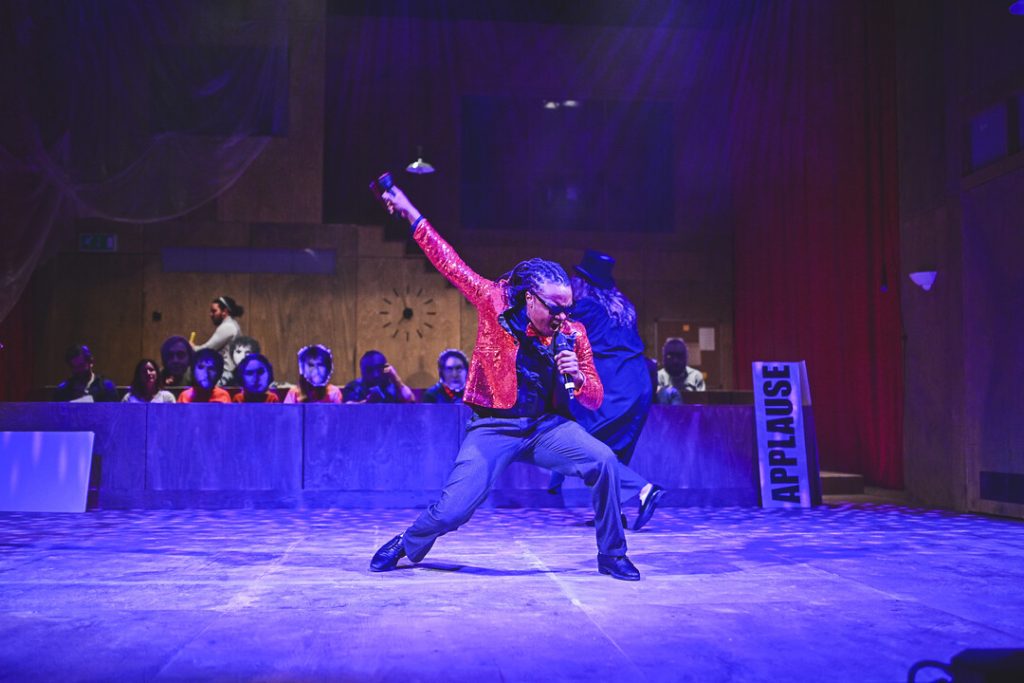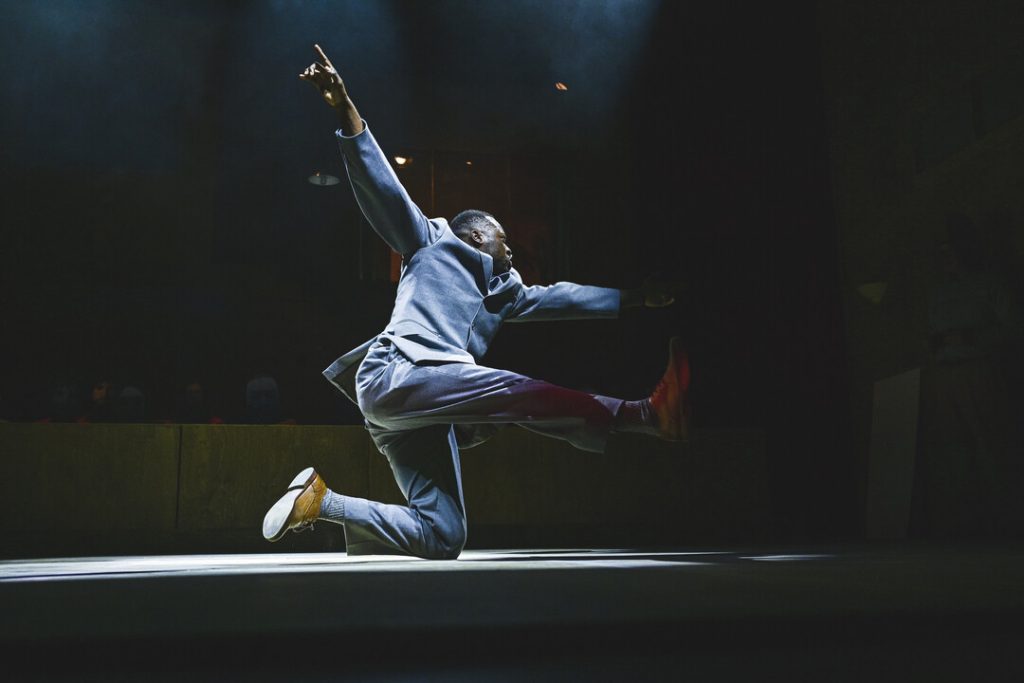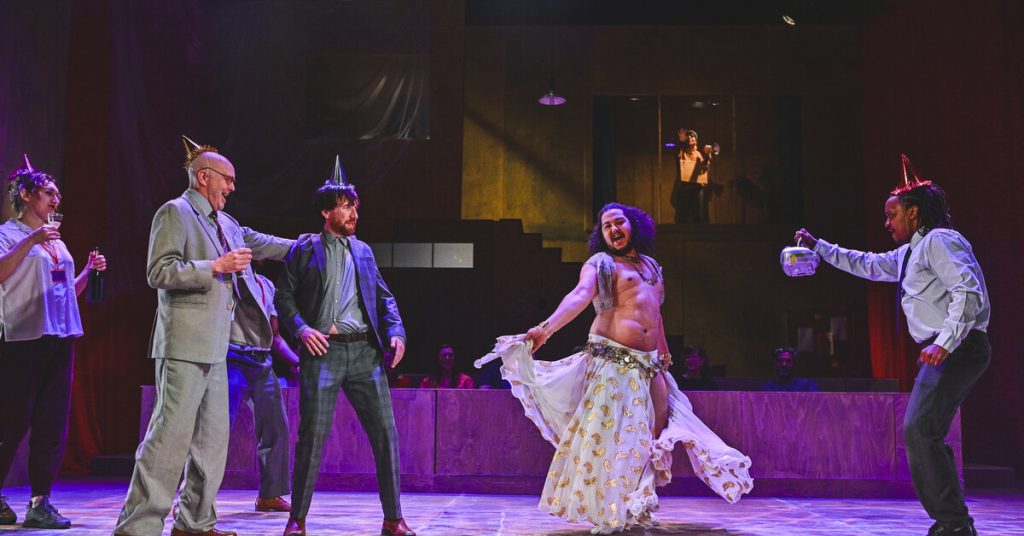
 (3 / 5)
(3 / 5)
National Theatre Wales latest production consisted of three part theatre experience called ‘The Cost of Living’. The first part, which only 50 people that have paid for the main part, could come to, if they wanted to, was a discussion with politicians and council leaders where they heard the public’s opinion, on the cost-of-living crisis and what people in power can do to help (which I didn’t attend, therefore I can’t comment on that part). The third part was protest music by Minas, but I will not comment on this because I am going to discuss the piece of theatre.

The second part K and the Cost of Living was a theatre performance, which is an adaptation (by Emily White) of the play The Trial by Franz Kafka. The narrative tells the story of an innocent man who is arrested, but is still allowed to live his life. He doesn’t really get the chance to prove his innocence and at the end of the play he is killed. This adaptation was very similar to the original (although I have read, not seen, the original play) and it was an interesting take on it. I thought it was a good adaptation, and was well-modernised, but there were some things that were confusing and that didn’t make it a 5-star performance.

Eerie music was played before the performance, and then at the start of the play, they brought up the curtain a little bit. Then we had two people crawling towards the centre of the stage, drawing chalk on the floor, the curtain went down, and the music restarted. Then the curtain came up a bit more than the last time and there were two more people. The curtain came down, and the next time it came up all of the actors were on the floor, and the others joined in to do interpretative movement, which was like they were puppets and their body parts were moving outside of their control. They made it as if nothing had happened and the lights were still on between the curtains going up and down, which was a very interesting start, but it didn’t seem to have relevance to it.

There was a diverse cast and several actors played the role Josef K, the main character, which I thought was a lovely modern turn to it. They had actor Gruffudd Gyln to play Josef K, then a transgender character, played by actor Joni Ayton-Kent, then another character played by Lucy Ellinson, and the last Josef K was played by Kel Matsena. That added another modern twist and showed people from different backgrounds which represented National Theatre Wales themselves because they are a diverse organisation. It does potentially sound confusing, having four actors playing one character, but the way that they made the transition made it very easy to know which was Josef K. It was at significant part of the story that the whole cast came together to dance and the one in the centre was swapped for the next Josef K. All the actors multi-rolled, and it was very well executed, they were all excellent actors. Sound and lighting was used very powerfully to demonstrate their points, but I felt the parts of movement weren’t necessary and were a bit show-offy, something to add to make it ‘more modern’.

In terms of the main narrative, the company made a theatrical point of having the power cut off, and the landlady (Mrs Grubach) shouting to one of the tenants to put money in the meter. There was a protest before Josef K goes to work in the bank, with ‘enough is enough’ and ‘freeze the prices not the poor’ on placards. At another point Josef K gave a signature to a petition, but that was pretty much all the references to ‘the cost of living’. I felt the main point of the adaptation was to show how the government and people in power don’t understand, and show prejudice against working class people or minority groups, and about how we give all of our information away through data with our technology. It felt like the company had toyed with the phrase ‘the cost of living’, to mean
something different, being that the price you must pay for living is to have a lack of freedom and prejudice and inequality against you. This felt out of touch with what was advertised and instead this production was a modern take on what life is like.
NTW wanted people who actually struggle with the cost of living to see the production, but the cheapest price for a ticket was £8.00, which doesn’t reach their supposed target audience.
I thought the adaptation of The Trial was well done and the actors were brilliant, however I don’t see the connection to the cost of living, as in struggling to find money to eat and choosing between heat and eating, I think it was falsely advertised in that way, and there were parts that I felt were put in just to say it was modern, but didn’t really fit well with the rest of the production such as the dance/ movement sequences.

